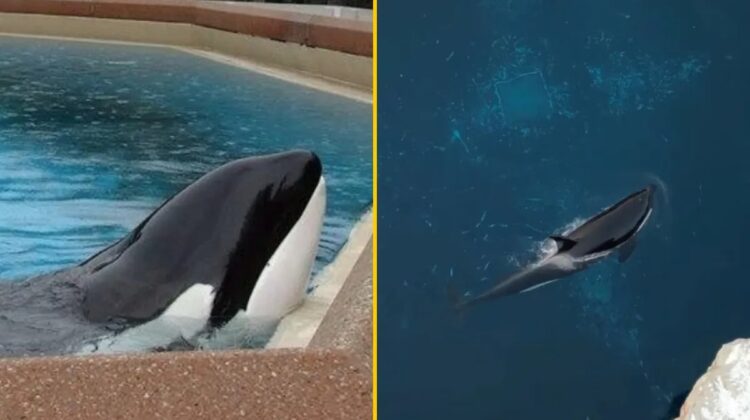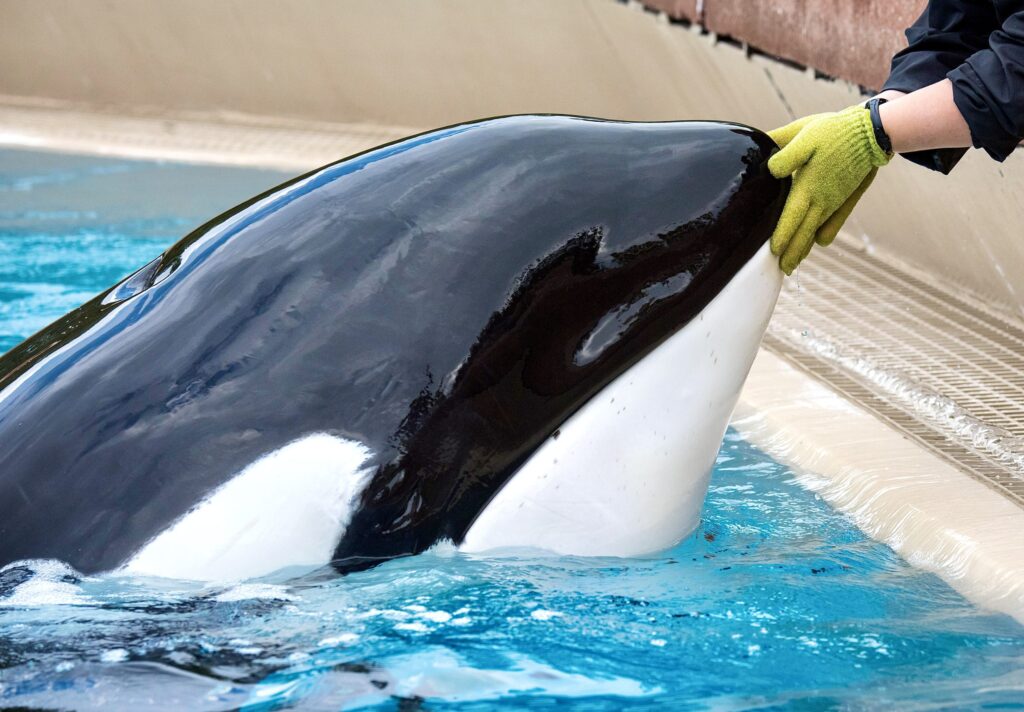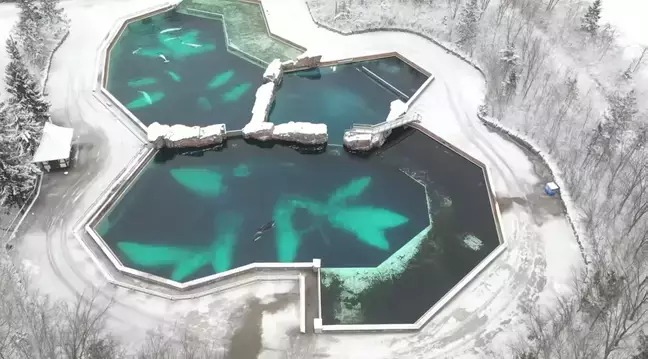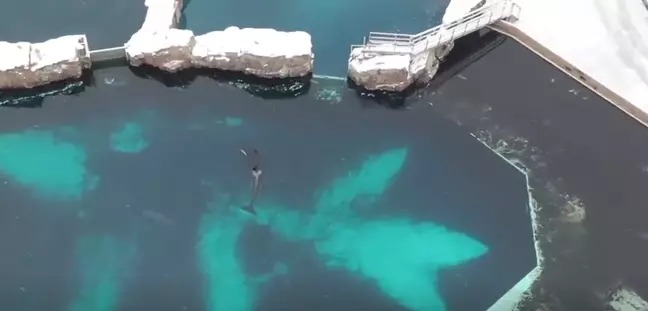
Animal rights activists and concerned citizens around the world are mourning the loss of Kiska, the last surviving orca at Marineland in Niagara Falls, Canada. The 46-year-old orca passed away recently after spending her entire life in captivity at the park, where she faced decades of confinement in a small tank.
Kiska was taken from her family in Iceland in 1979 at a young age and sold into the aquarium industry. She was kept in a tank completely alone for most of her life and suffered from loneliness and isolation. Despite no longer performing, Kiska remained on display at Marineland, and her situation brought attention to the issues surrounding orca captivity and animal rights.

Kiska gave birth to five calves during her captivity, but all of them died at a young age. In 2021, a video of Kiska repeatedly banging her head into the tank walls went viral, leading to increased scrutiny and criticism of Marineland’s treatment of captive animals. The incident sparked the hashtag #freekiska, which became a rallying cry for animal rights activists and concerned citizens.
The news of Kiska’s death has led to renewed calls for Marineland to be investigated and prosecuted for their treatment of captive animals. Animal Justice, a national animal law organization, has been leading the charge in advocating for Kiska’s release and for changes in the laws surrounding animal captivity.

The death of Kiska is a tragic reminder of the consequences of keeping marine mammals in captivity. Orcas and other cetaceans have complex social and emotional lives, and their well-being is severely compromised in captivity. Many captive orcas exhibit abnormal behaviors such as repetitive circling, self-harm, and aggression towards other animals and humans.
As more people become aware of the issues surrounding animal captivity, there has been a growing movement to end the practice. Many countries have banned or severely restricted the captivity of marine mammals, and public opinion has turned against the practice in recent years.

Kiska’s story has brought attention to the plight of captive orcas and the need for greater protections for animals in captivity. While her death is a tragic loss, her legacy will continue to inspire people to work towards a future where marine mammals can live free and thrive in their natural habitats.

Leave a Reply